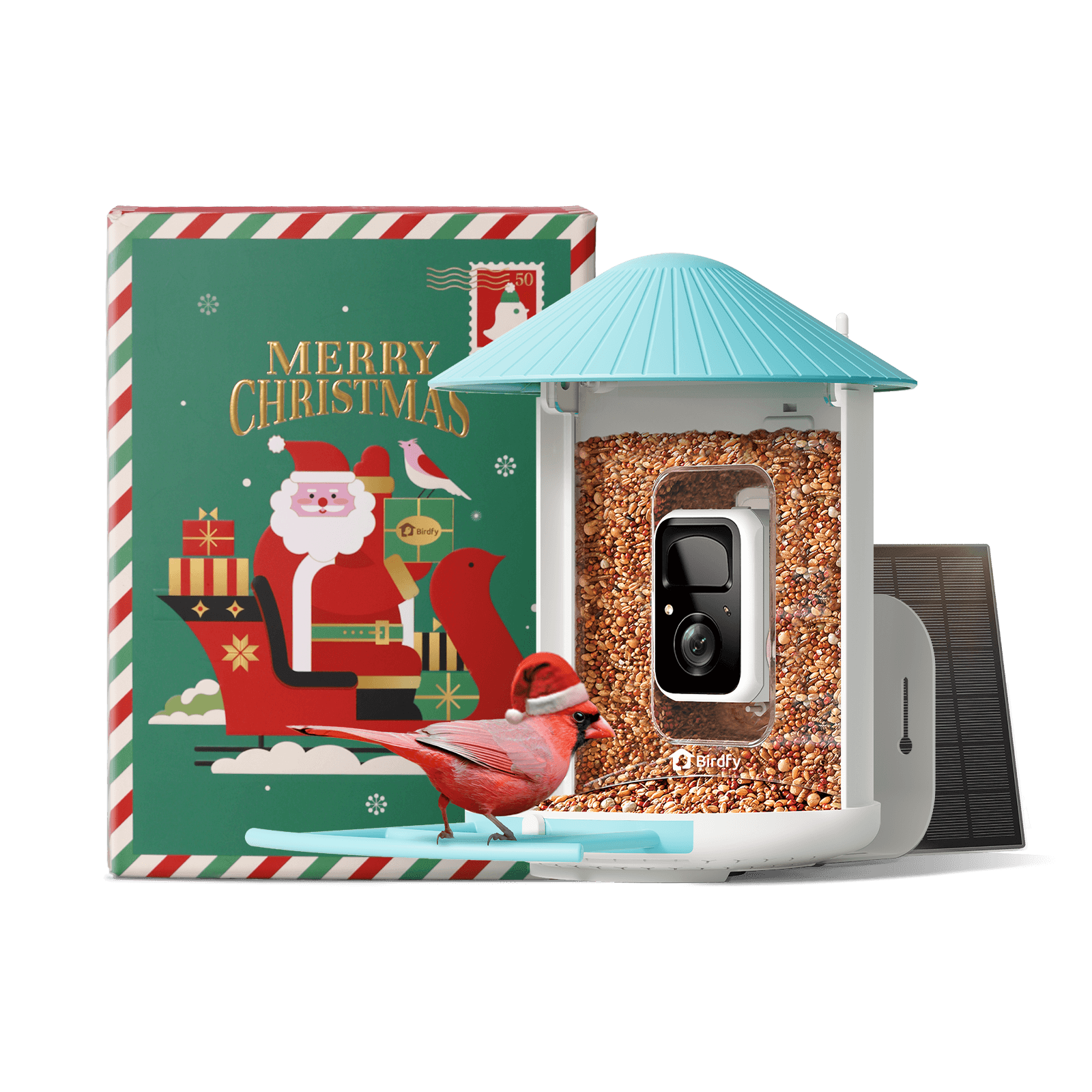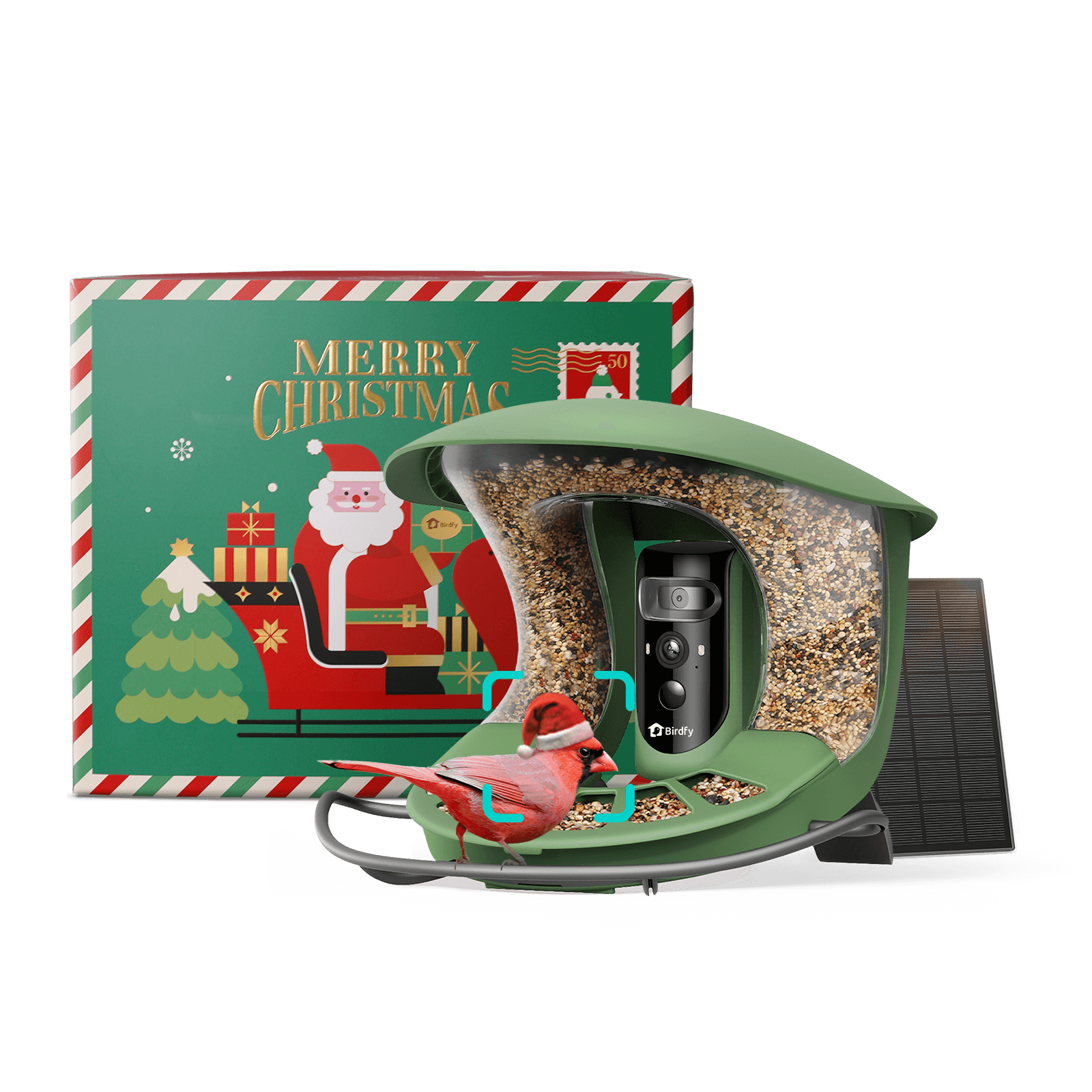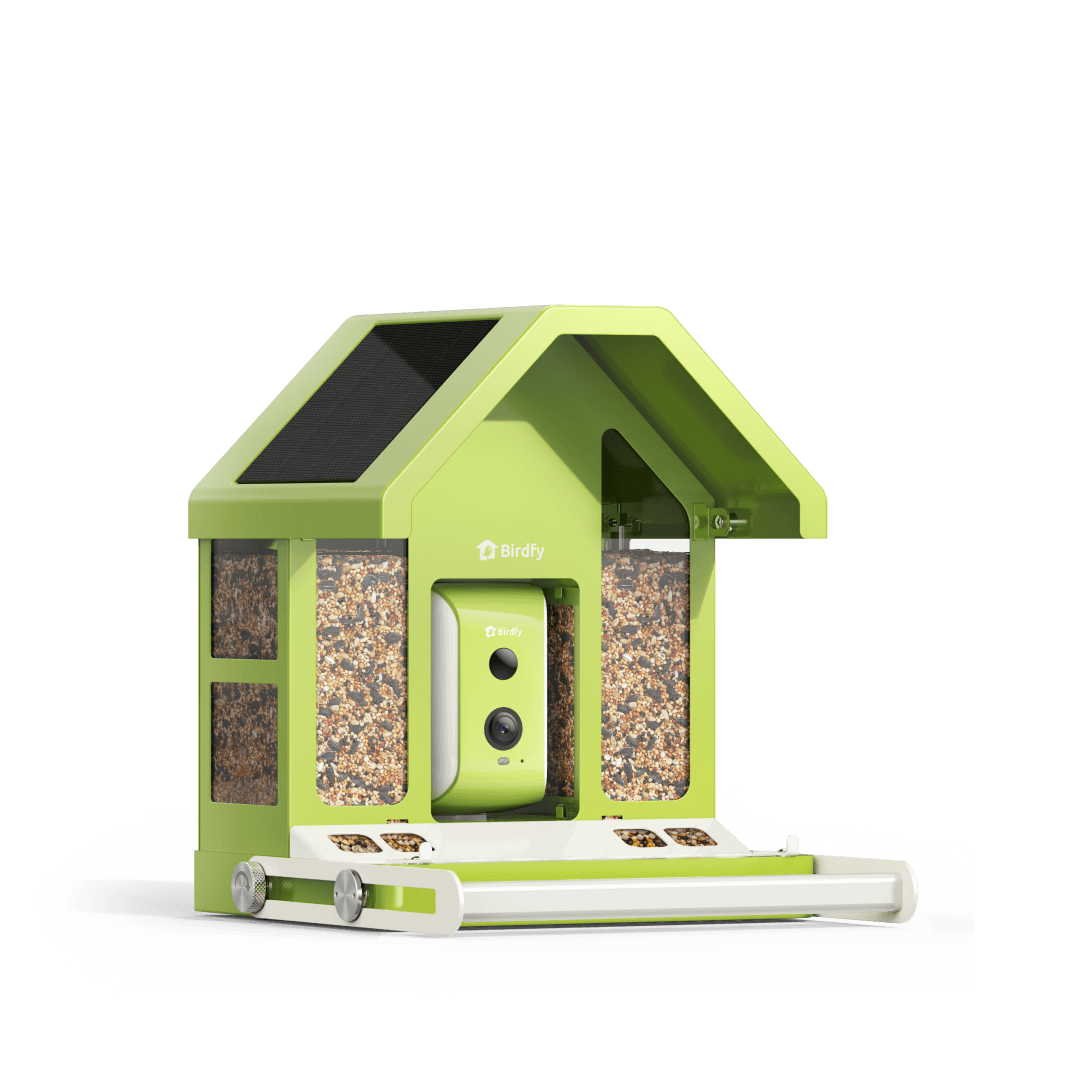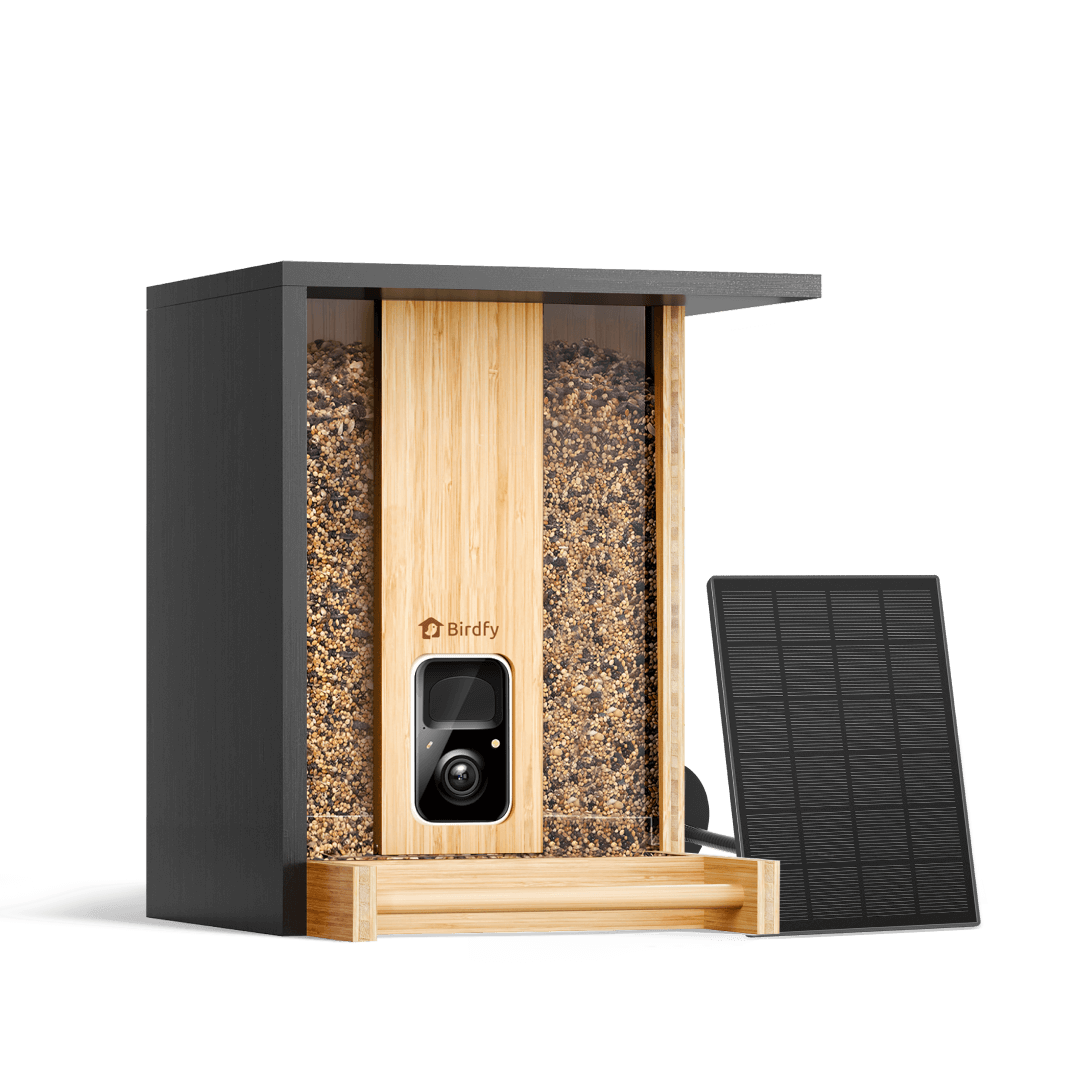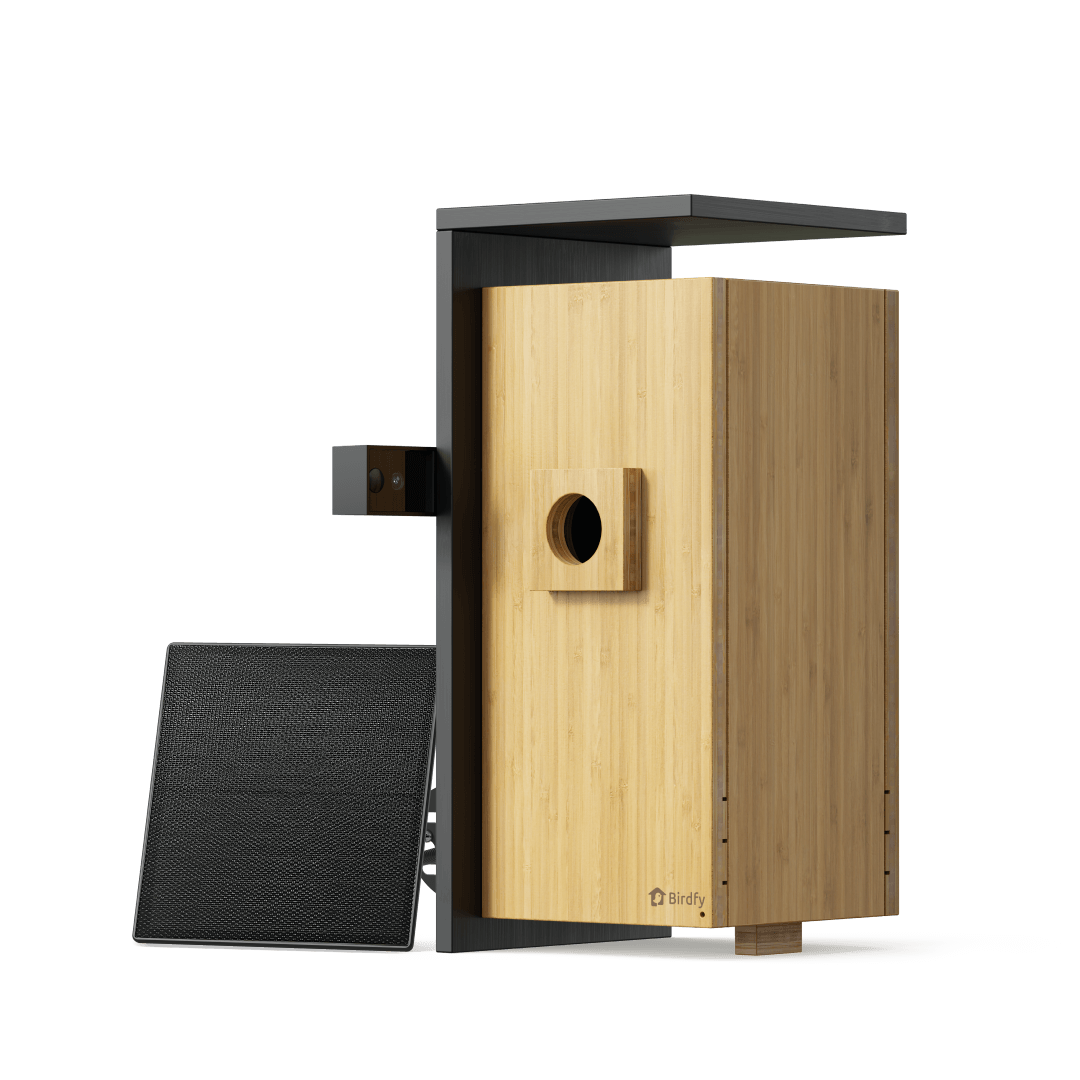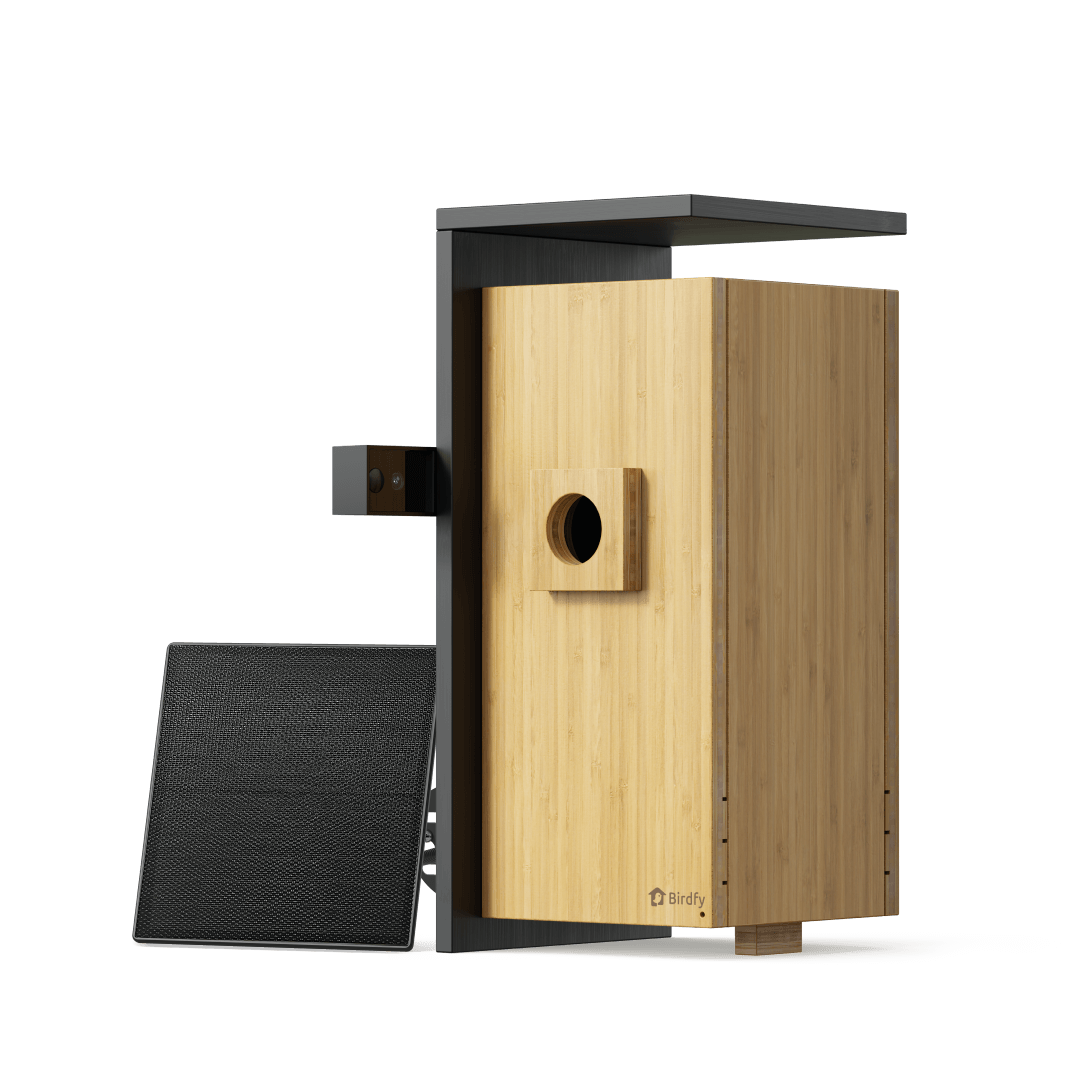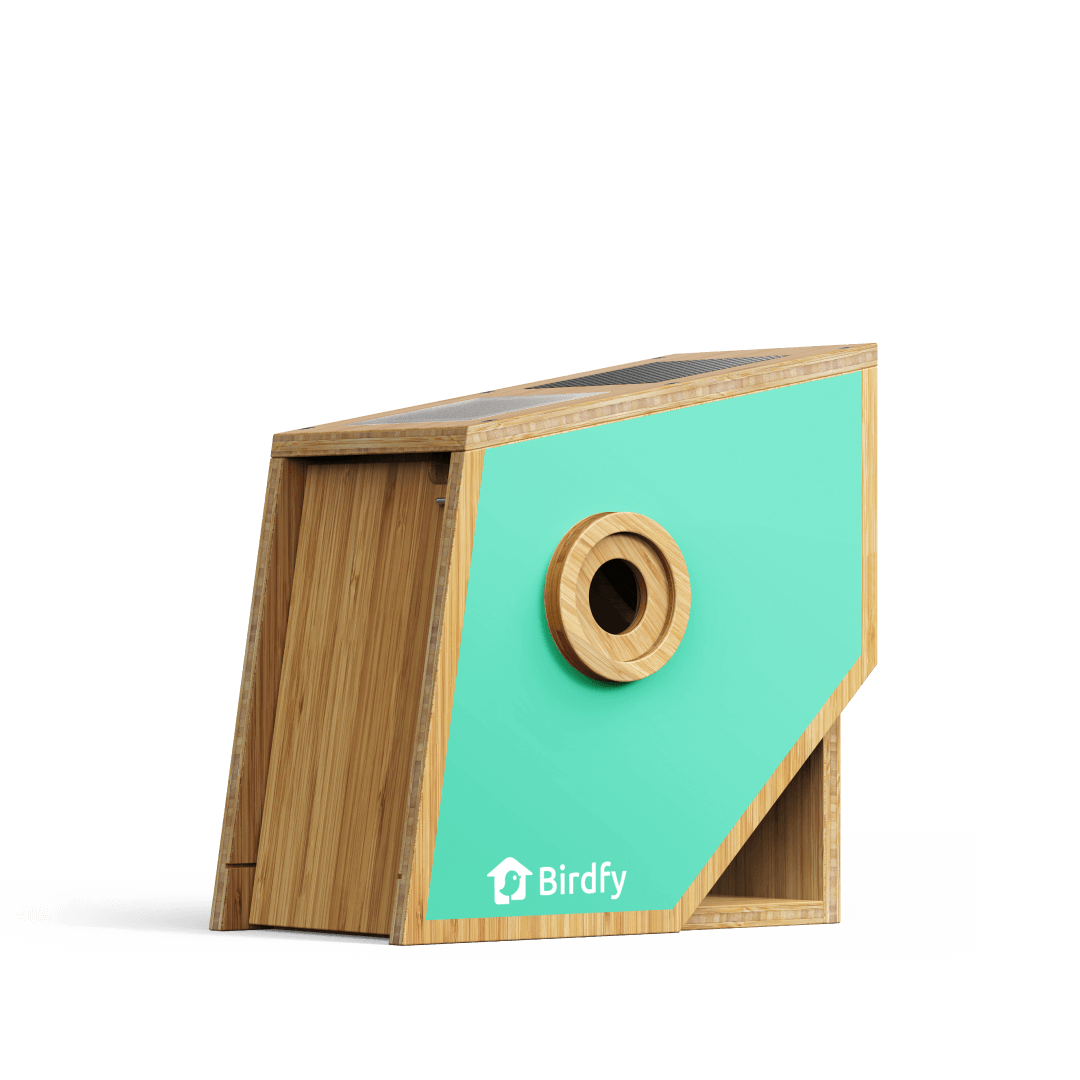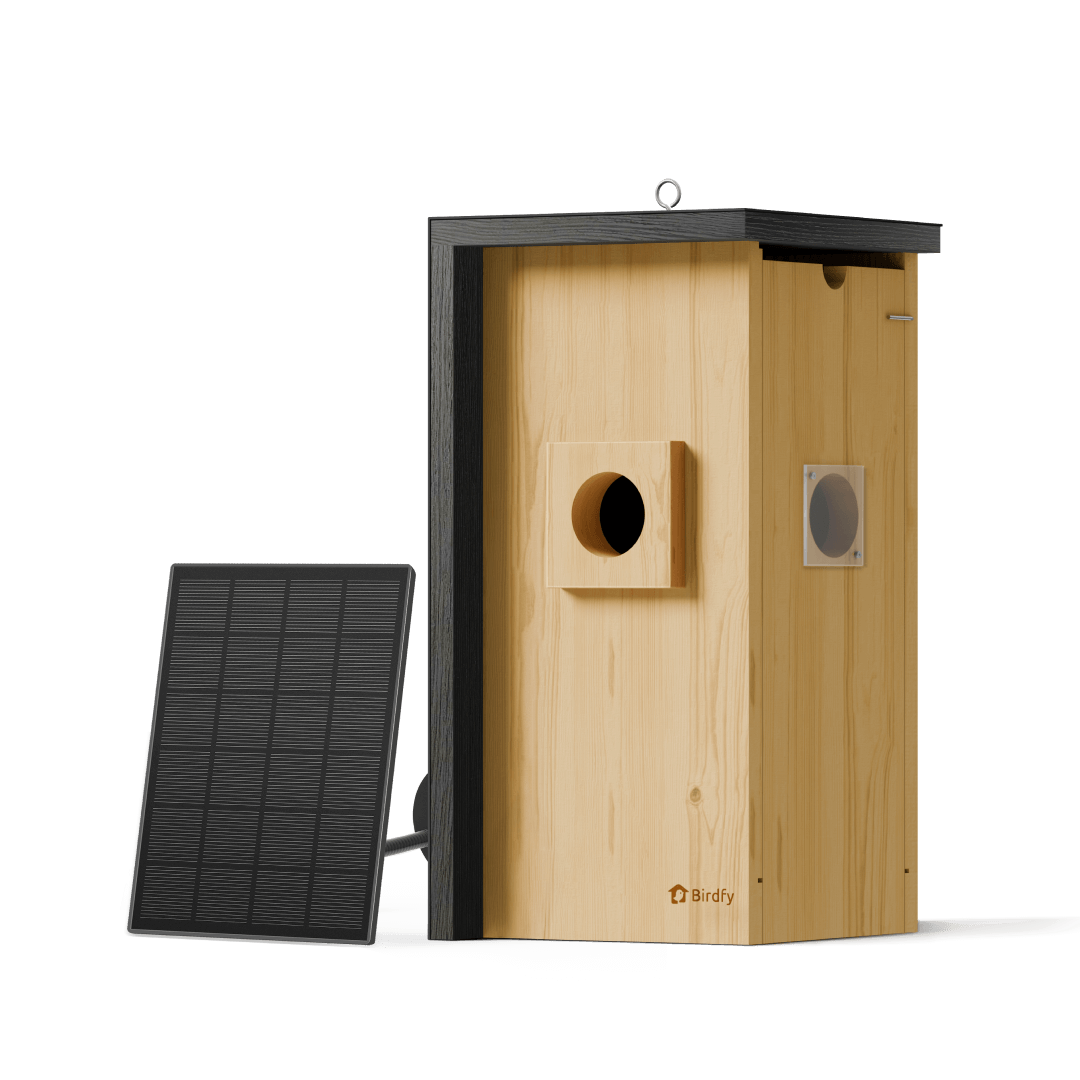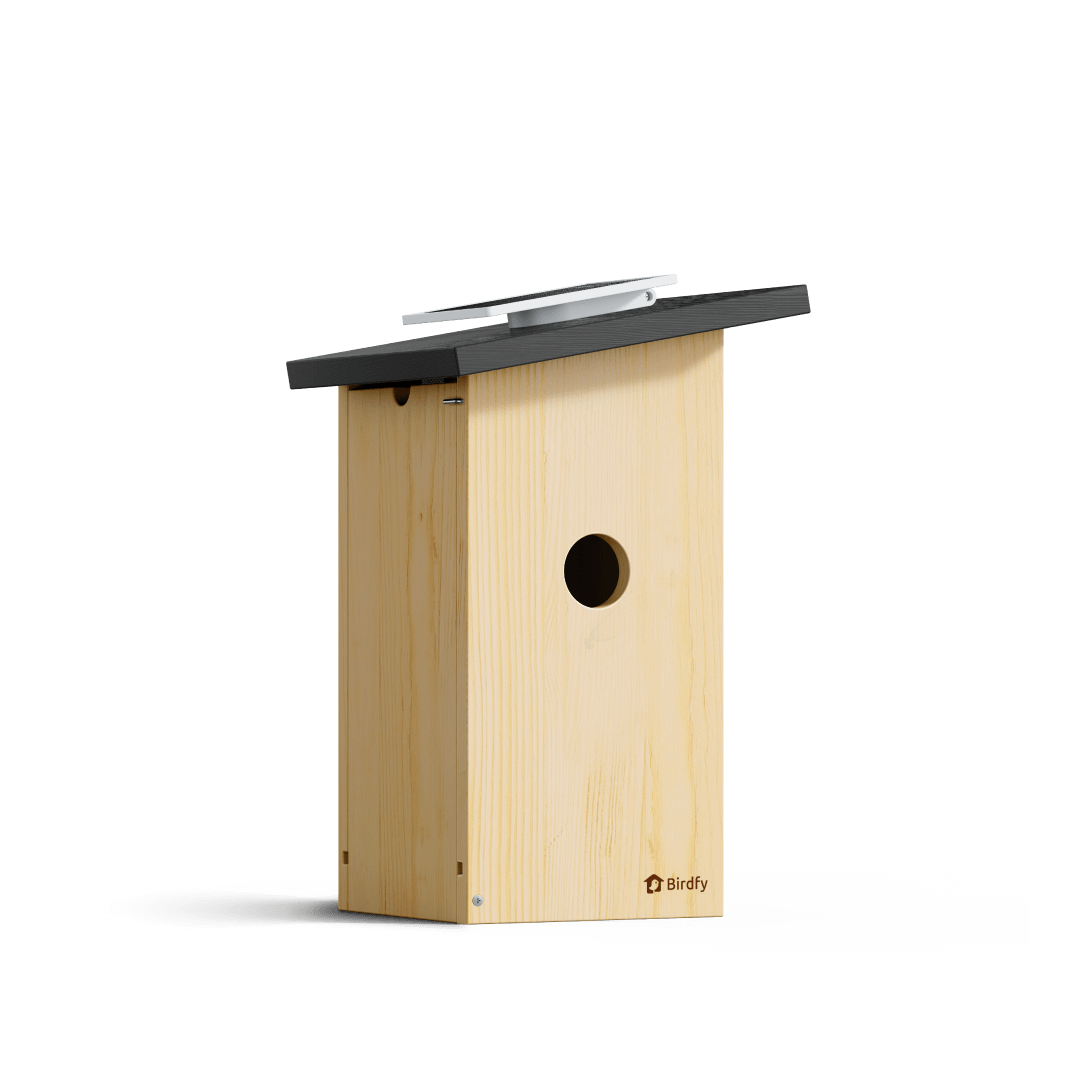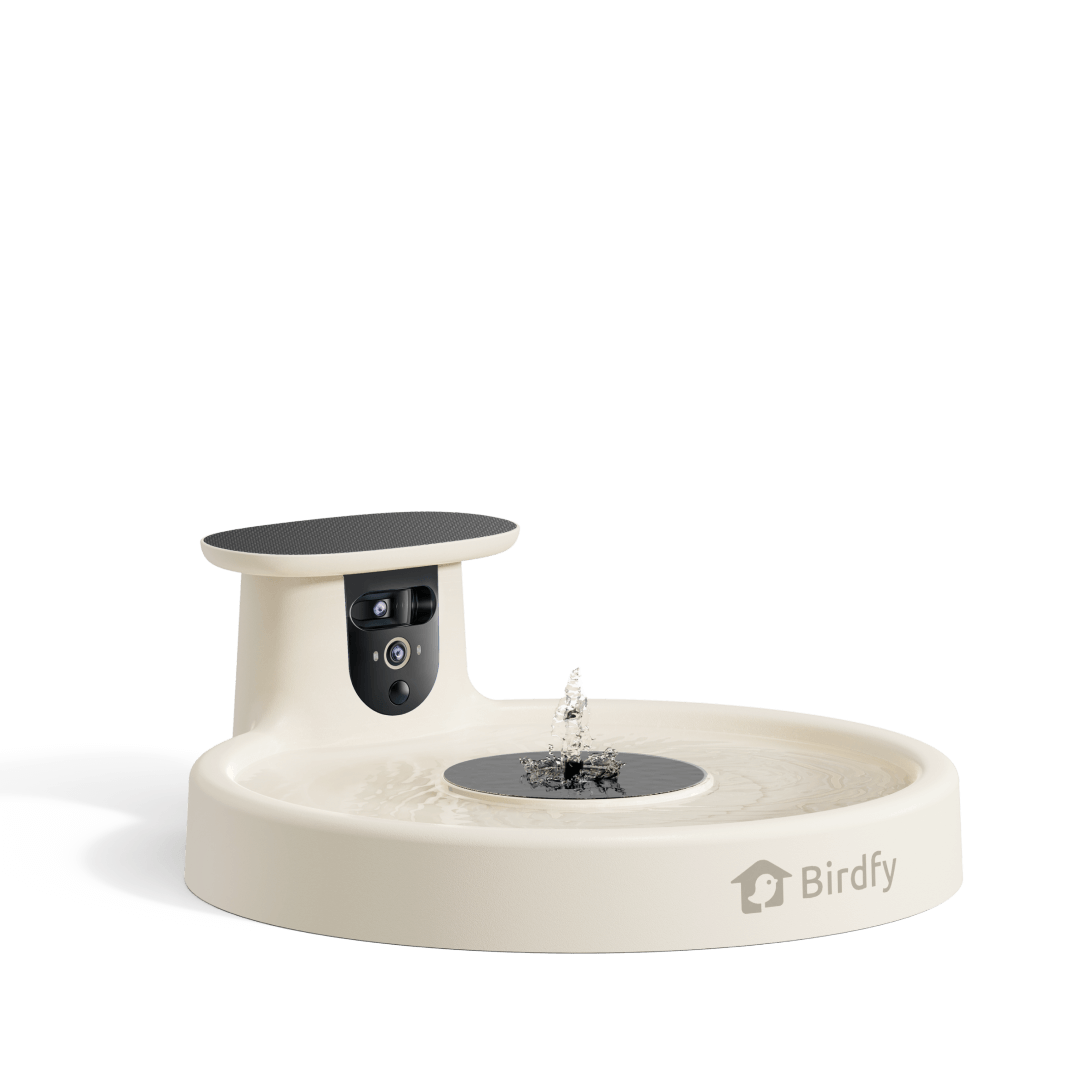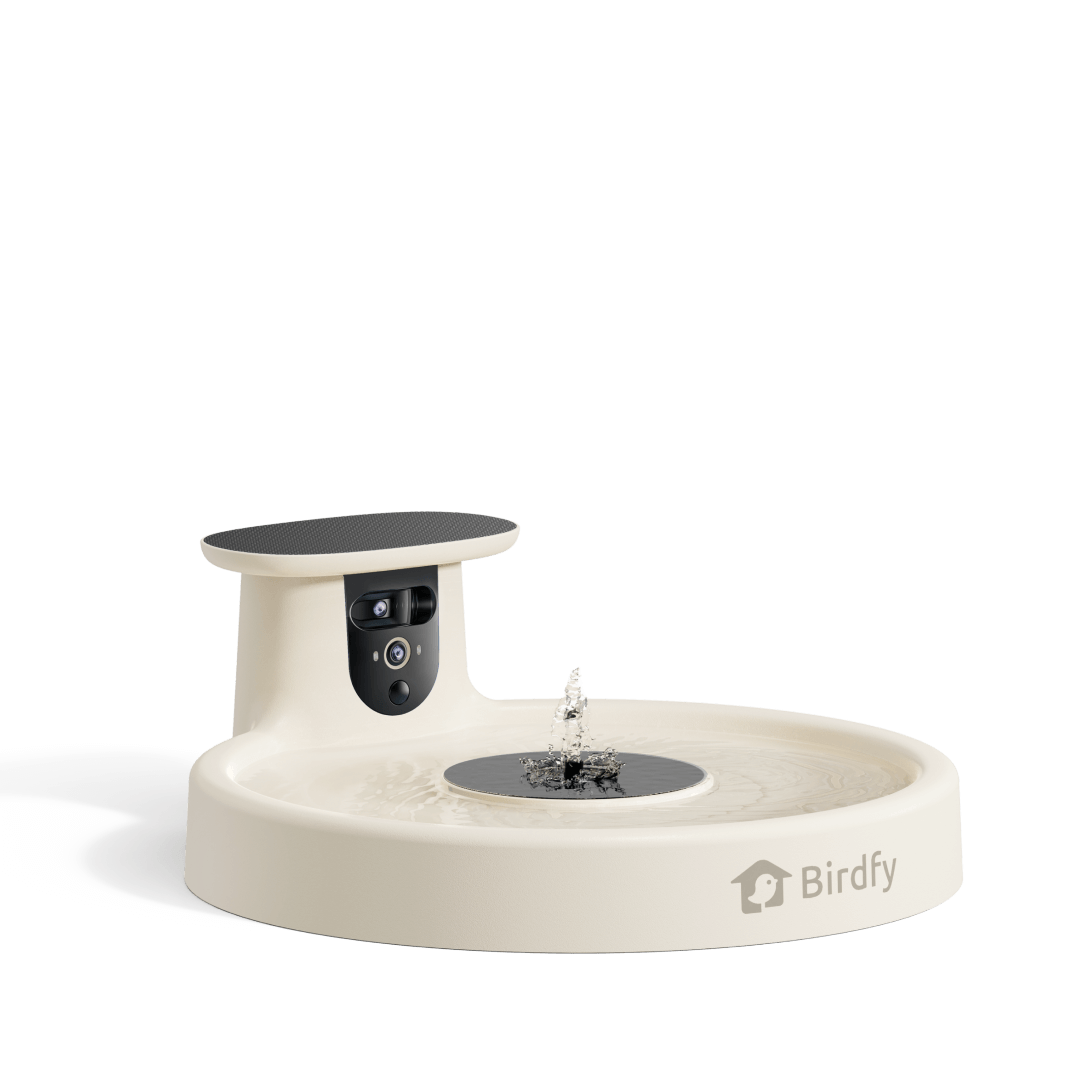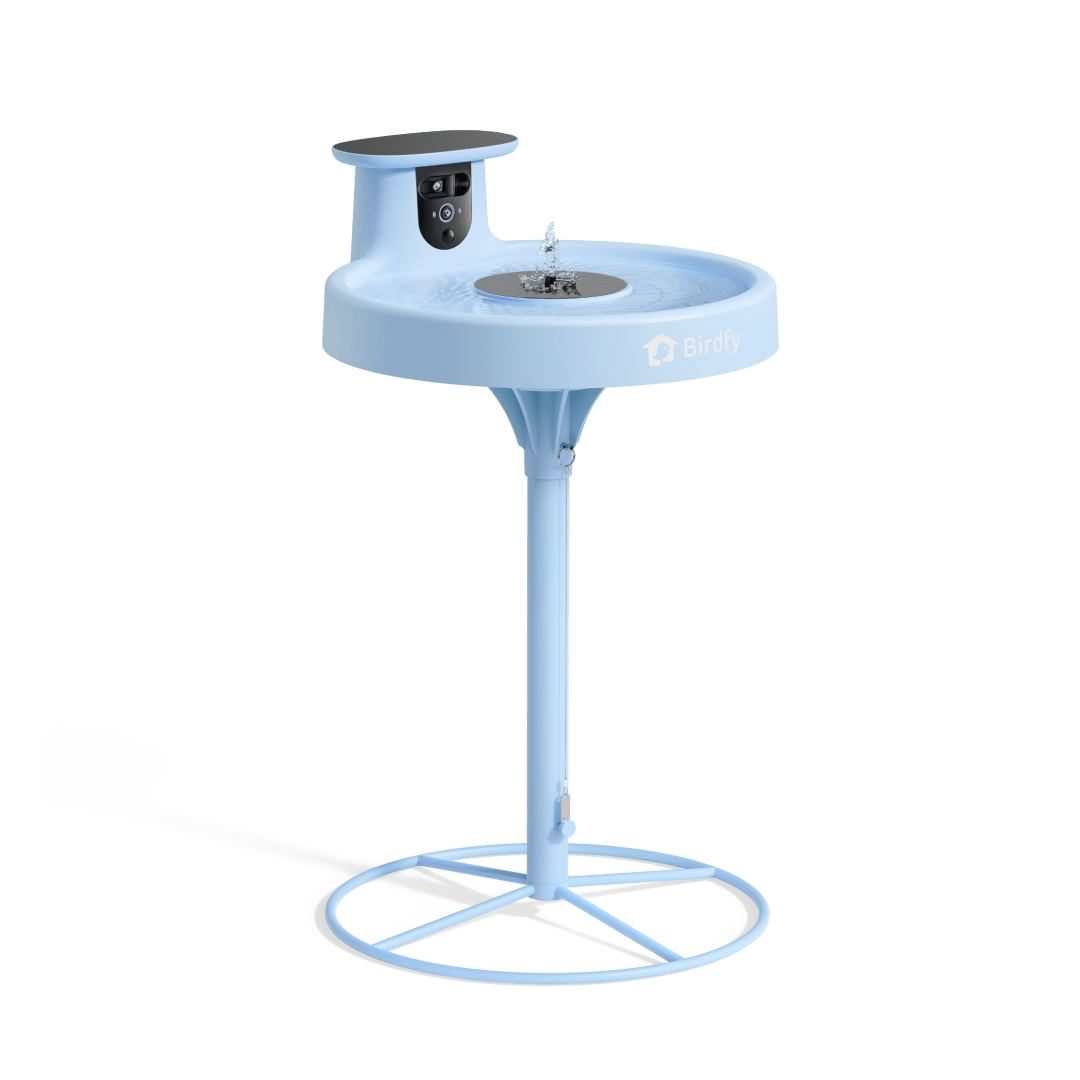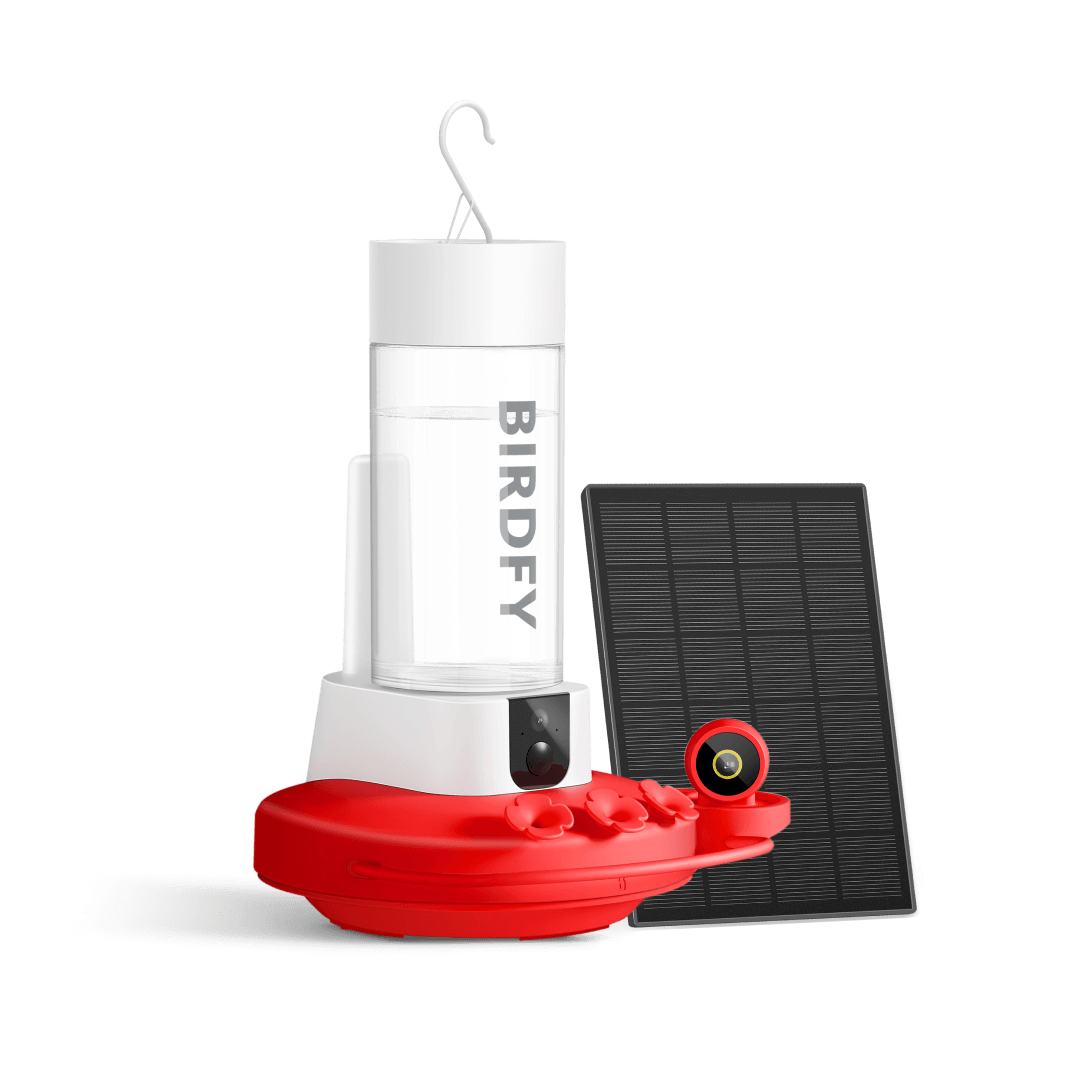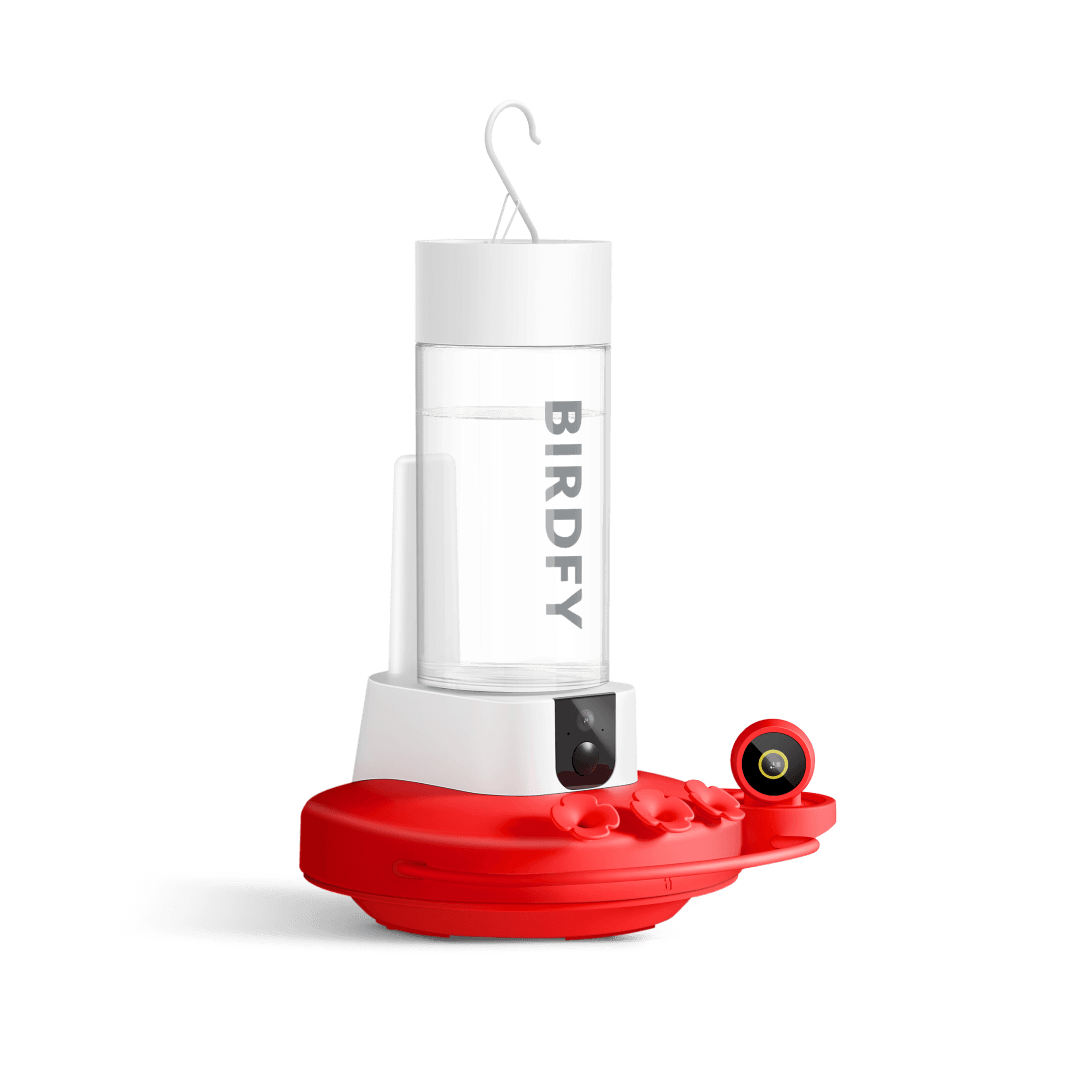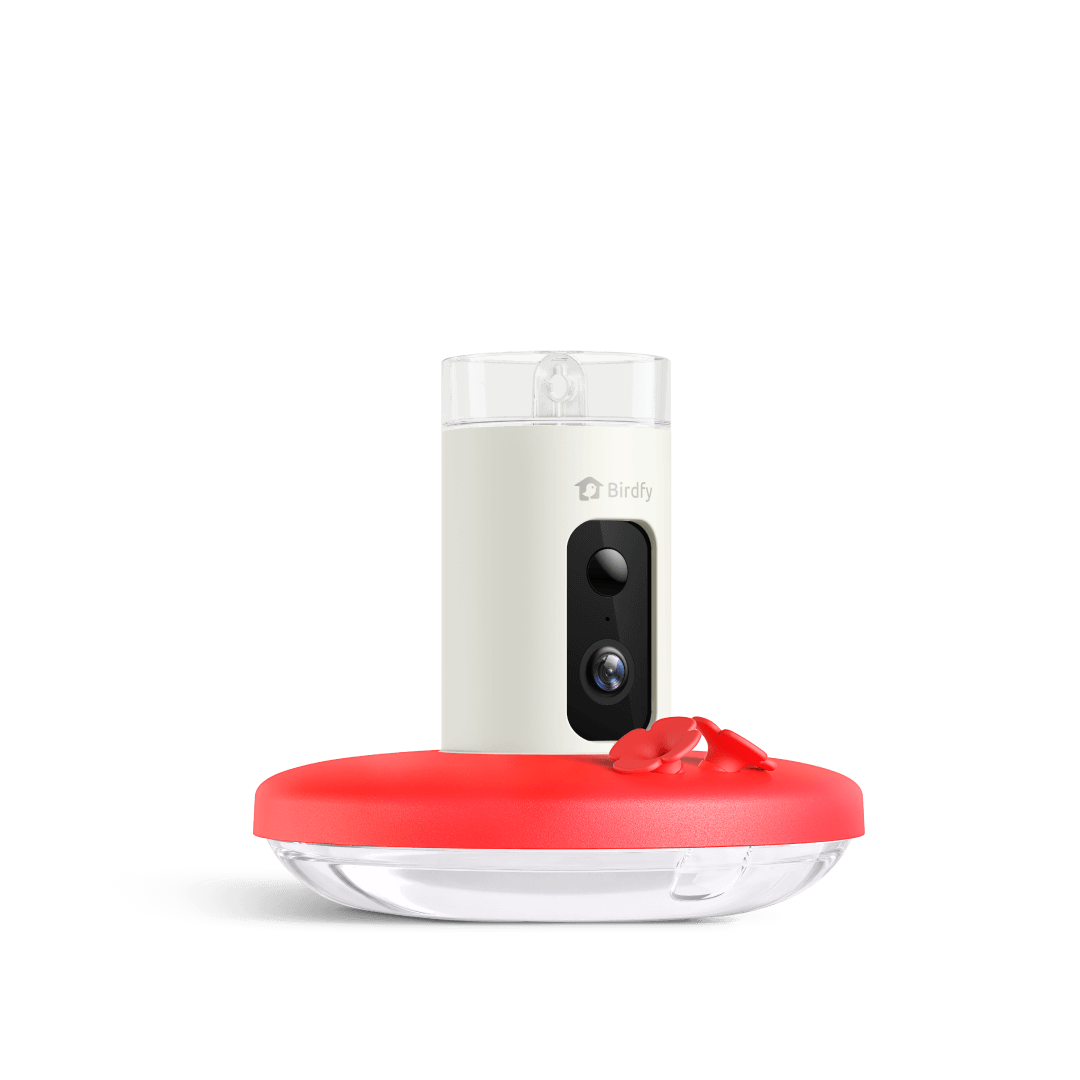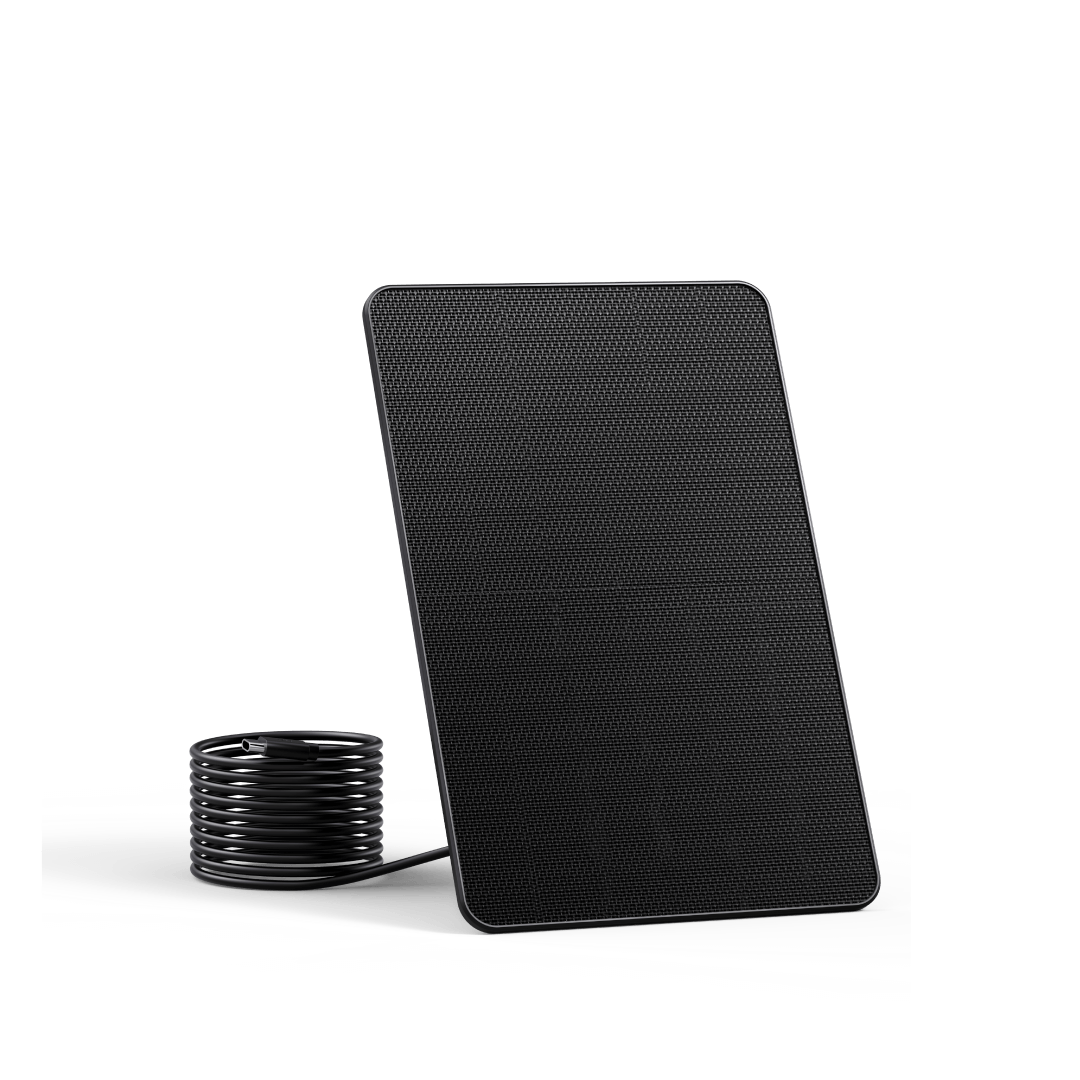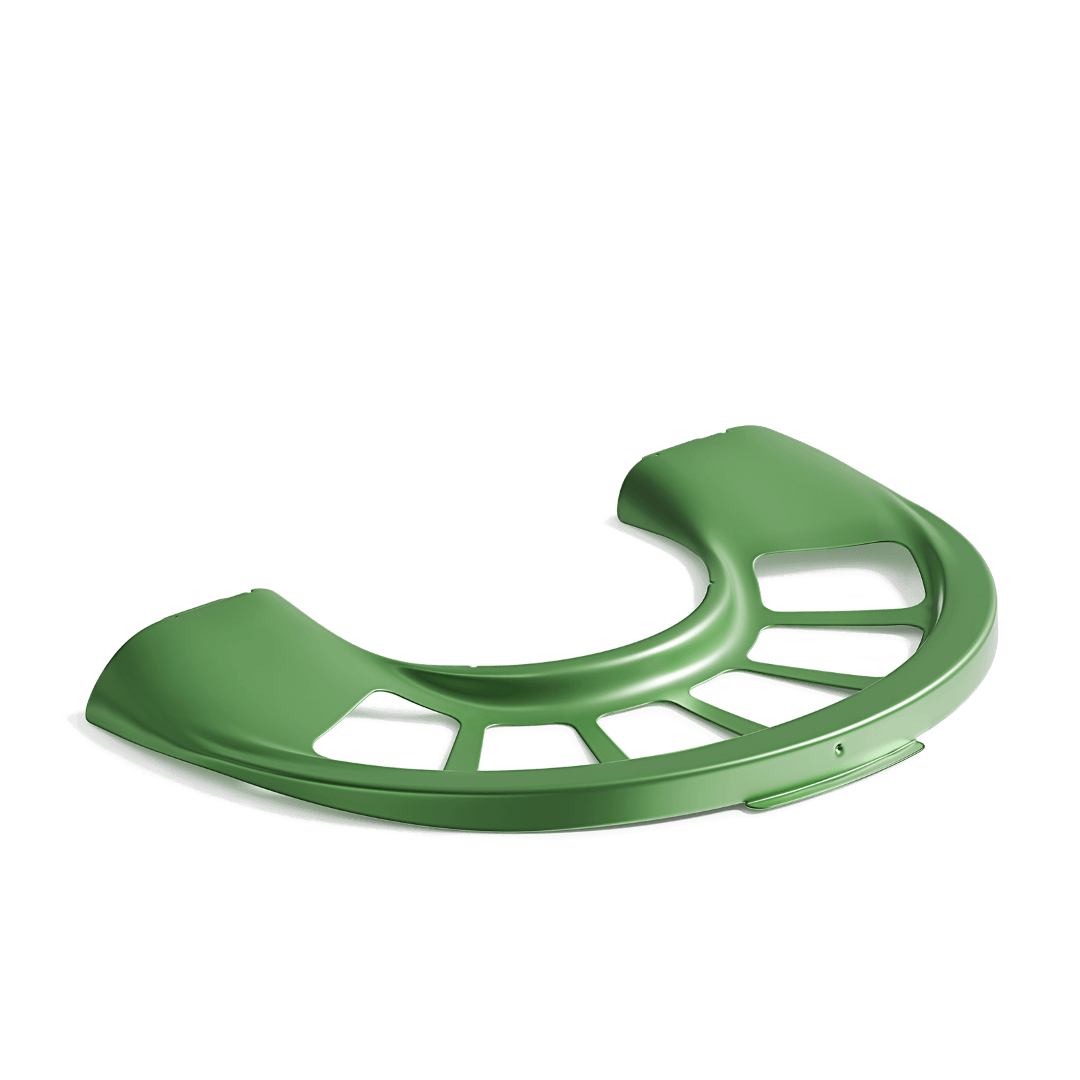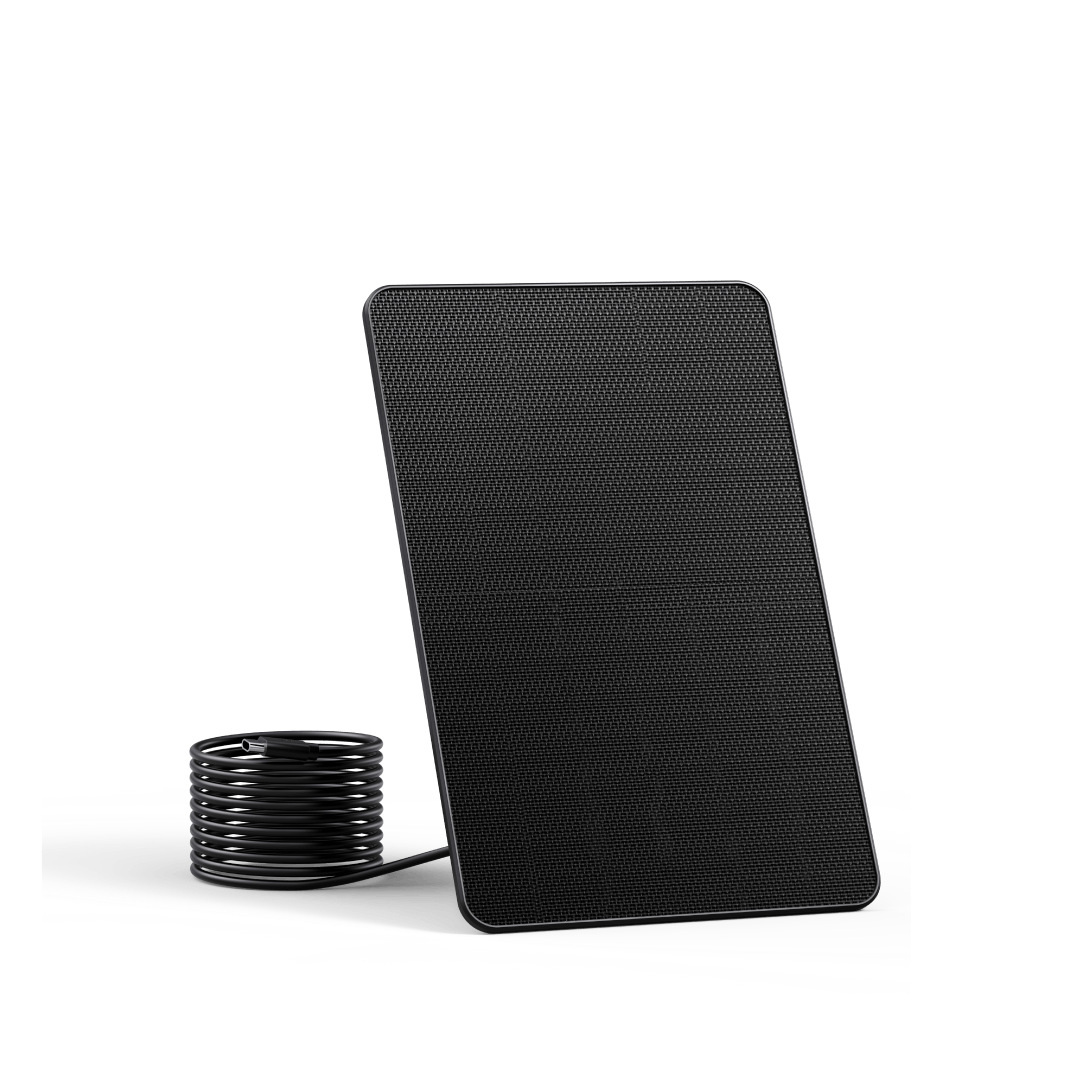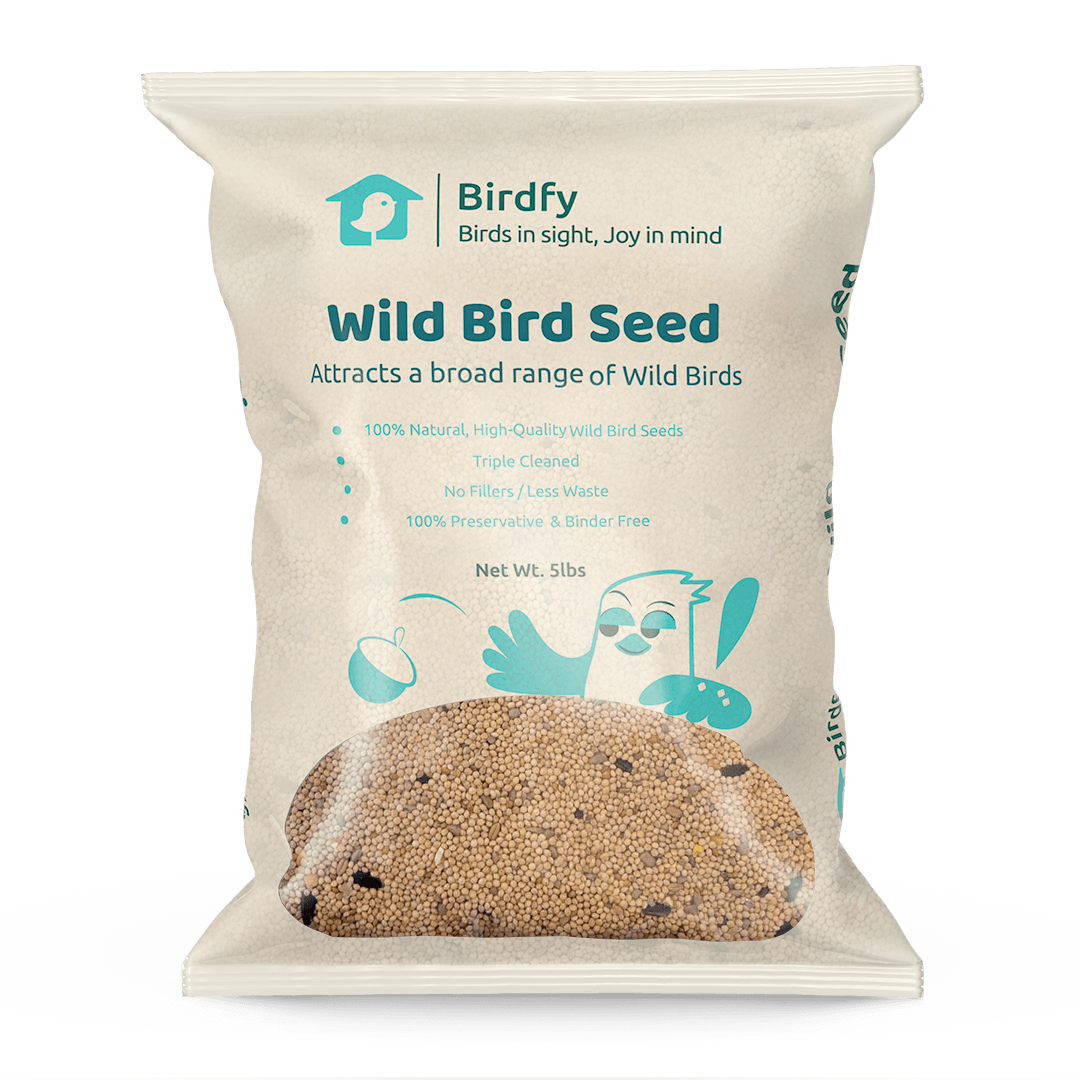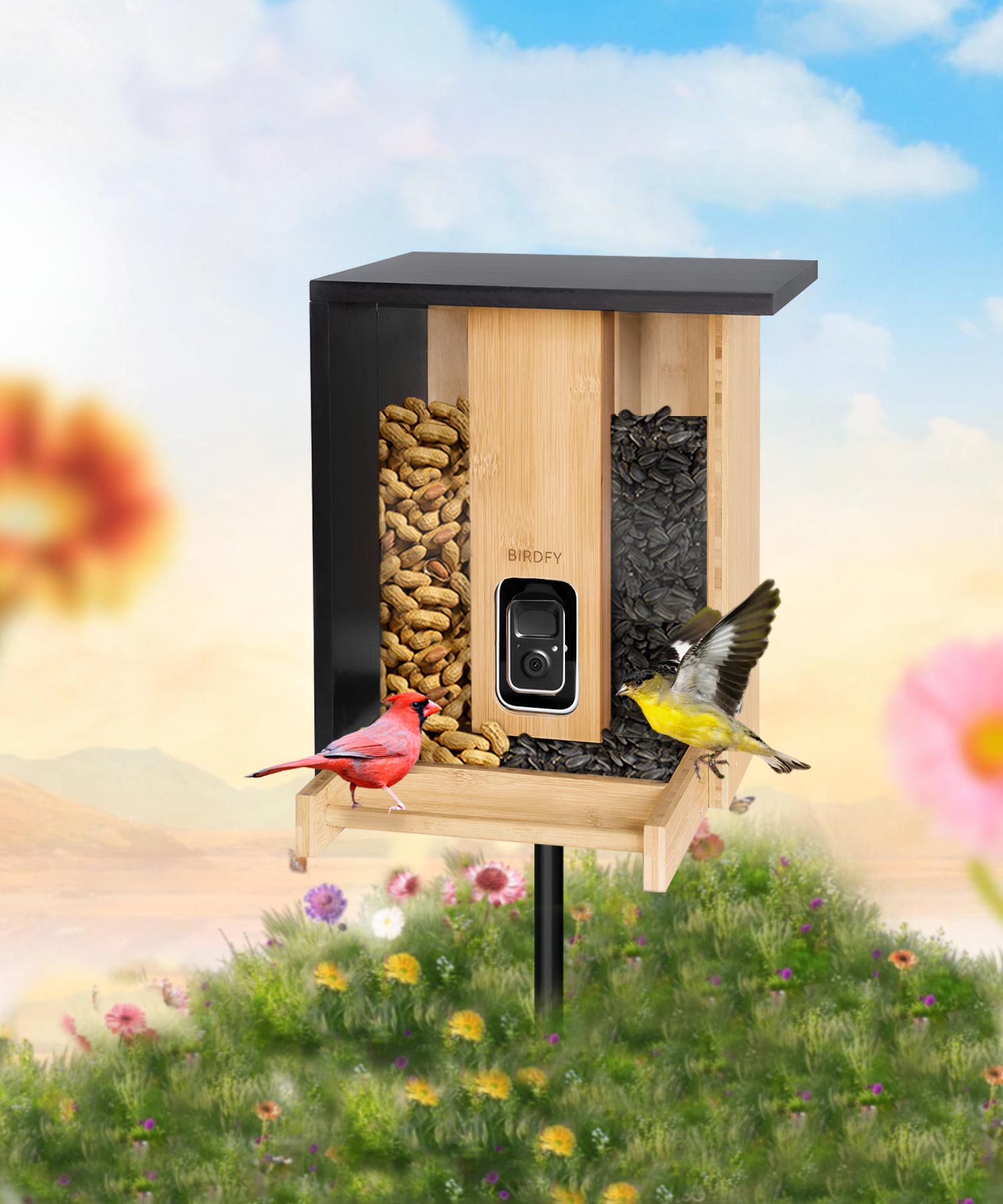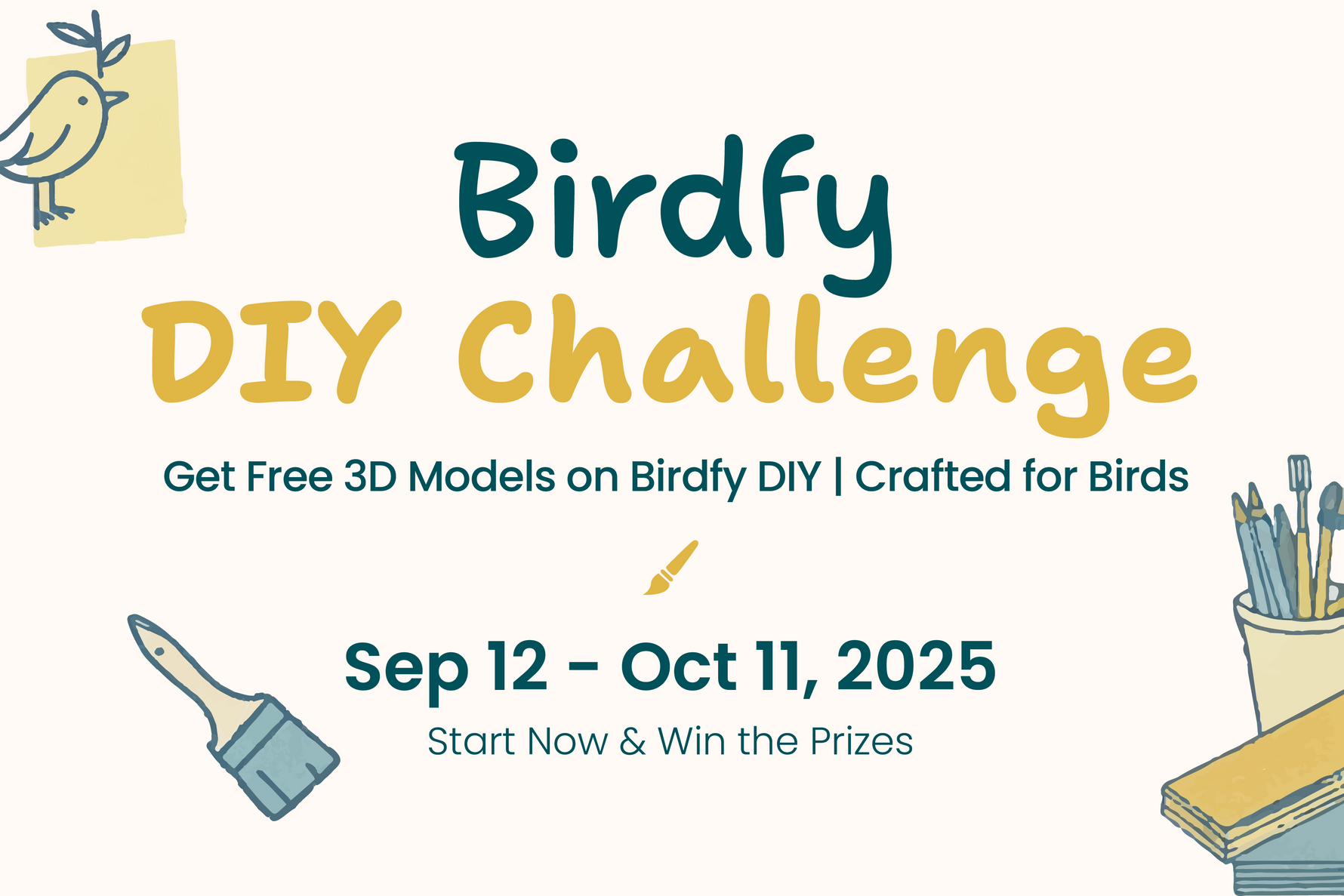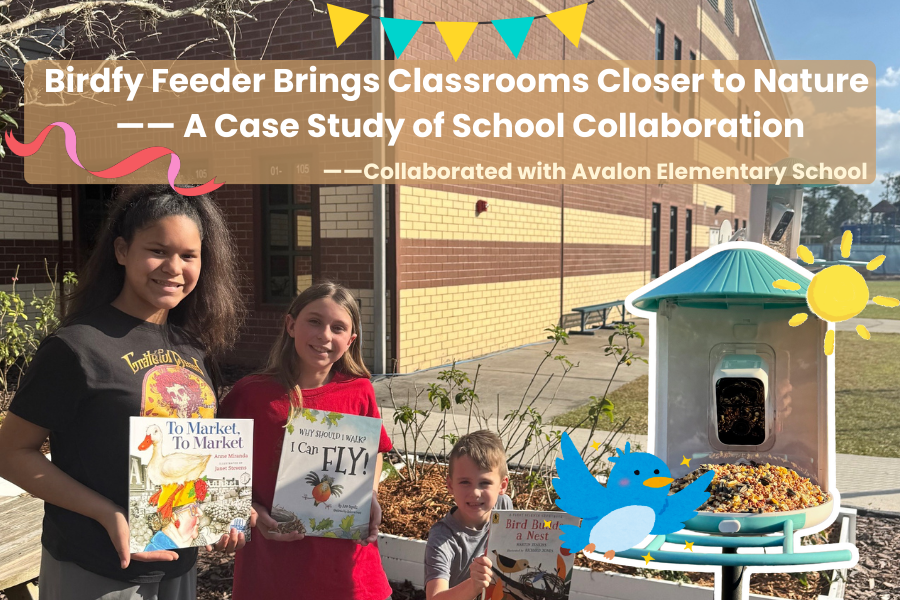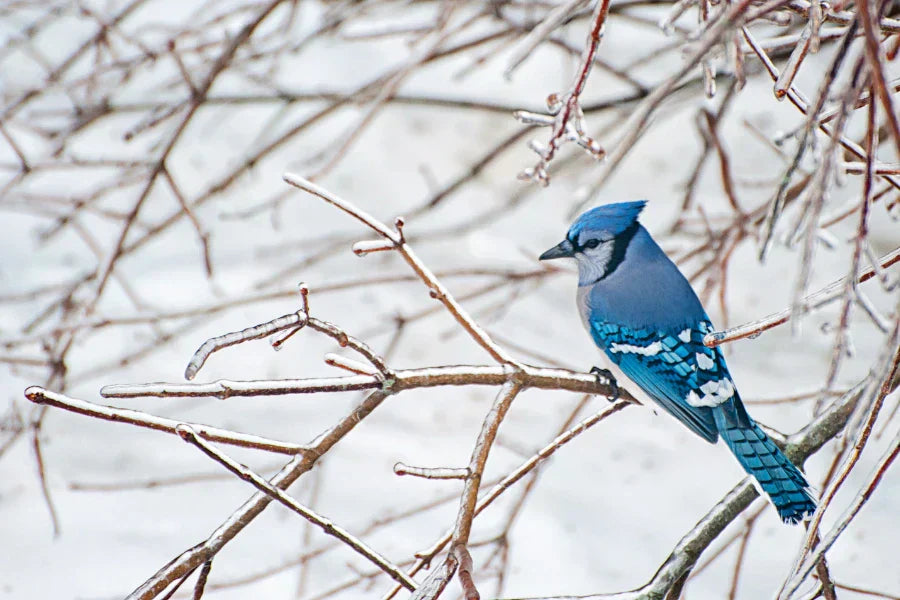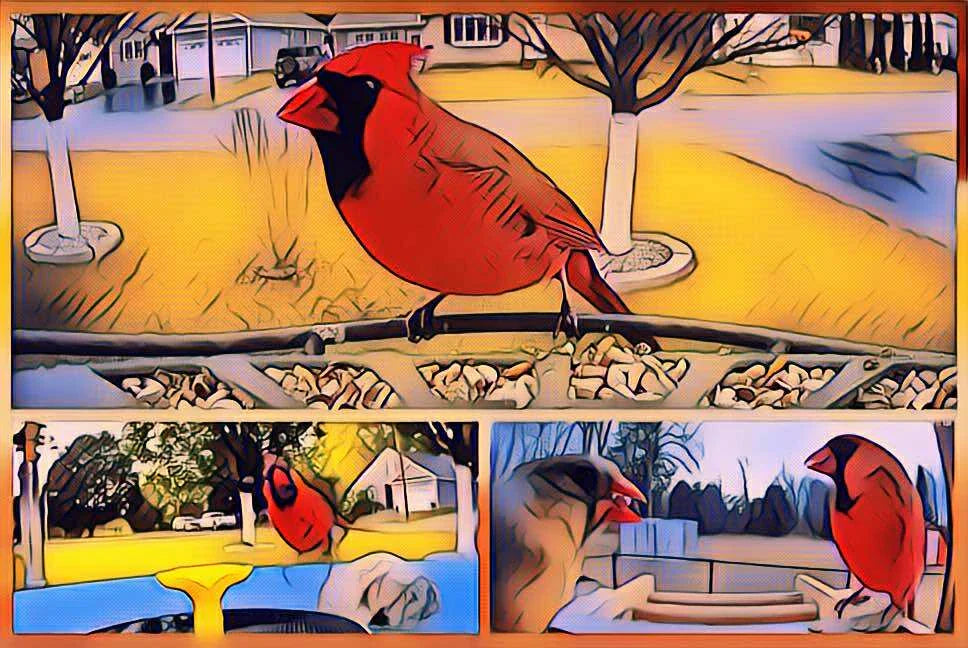Do Birds Eat Bananas/Apples/Grapes? A Complete Guide To Fruit Diets for Birds
Avian species are exceptional; their diets range from a variety and are unique to the species type, geographical location, and ecosystem location. Most birds are polyphagous and feed on seeds, insects, plant products, etc. Hence, for some bird species, fruits are essential in their diet. The conveyance of fruits attracts birds due to their bright color, succulent texture, and natural desire for sweet foods. But why do some birds prefer fruits, and what is so special that they get from them?
Read this complete article to learn more about why birds eat fruits, the advantages offered by fruits, and some examples of such birds. We will also explore some of the most recommended fruits to give to birds. If you have specific queries about specific fruits like apples, oranges, pears, and many others, this may help. We invite you to read our article if you're interested in birds or fruit-eating ones.
Do Birds Eat Fruits?
Research records indicate that most birds have fruits in the list of foods they feed on. Piscivores or fish-eating birds would naturally be lured by the fruit's bright color, taste, or texture since the fruit or plant is believed to contain proteins or be crudely fed, which is a prerequisite to protein synthesis. Fruits are relevant to birds in the following way: they are natural sources of quick energy and rehydration and are rich sources of Vitamins, antioxidants, and natural fructose.
Some other birds that feed on fruits include the toucans, parrots, waxwings, and robins, and they take fruits like berries, apples, bananas, and tropical fruits. The fruits the birds consume are easily digestible, meaning that the birds are always active or healthy. However, not all fruits are suitable for birds; there are fruits like avocados and those containing dangerous seeds. It is beneficial for the birds' health to offer them clean and fresh fruits because those feeding on them in backyards can feed on unsafe fruits.

Why Do Some Birds Like To Eat Fruits?
In different ways, birds are also attracted to fruits. One of the main reasons is that fruits contain condensed nutrients, which are also accessible for birds to dissect. Birds are also attracted to fruits since their colors, like red, yellow, and orange, are believed to be indicators of richness and sweetness.
Adult birds should be fed with fruits since they are rich in sugar and water, which is very important in weather conditions that are very hot or during dry seasons. Further, most birds of different kinds have developed a sense of smell for ripe fruits, and the shape of their beaks is rather suitable for picking up and consuming the soft pulp of fruits.
What Does Fruit Offer To Birds?
Fruits are incredibly nutritious for birds, offering several key benefits that support their health:
- Vitamins and minerals: Fruits contain Vitamins A, C, and K, critical to birds' eyesight, disease immunity, and health.
- Antioxidants: Most fruits also contain antioxidants that help birds fight free radicals that may be dangerous to their lives in the long run.
- Natural Sugars: The elaborated sugars in fruits also provide a prompt energy source for active birds.
- Hydration: Some sweet, pulpy fruits, such as berries and watermelons, act as liquid sources for birds during scorching weather or in desert regions.
- Fiber: Fruits contain fibers that are good for digestion and help maintain the birds' guts healthy.
5 Incredible Fruits Eating Birds
Fruits are a favorite food of many bird species. Below are some example birds and their favorite kinds of fruits.
Toucan:
Toucans are primarily associated with fruits. Their substantial, colored beaks are suitable for pecking fruits from trees. Toucans are the main frugivorous birds, but they also eat berries, figs, and tropical fruits.
Waxwing:
Beautifully feathered birds, waxwings are fruit-eating birds most of the time, especially when winter is setting in. They dine on apples, berries, and cherries.
Lorikeet:
The lorikeet, endemic to the Australian region, has particular brush-tipped tongues with which it bathes in nectarines and the juicy pulps of fruits such as mangoes, papayas, and grapes.
All year round, robins feed on insects, but in autumn and winter, they go for more fruits, such as berries, cherries, and apples.
These bright, perched birds prefer to munch on fruits and are most affectionate of oranges. Some bird lovers cut oranges in half and place them in their gardens to feed the orioles.
The Speckled Mousebirds Feasting On Berries
The Speckled Mousebird is one bird that is just full of fruit love. These are highly sociable birds; you may find them rigging their meals from trees on top of fruits like berries. As you observe them, you may notice:
- The mousebirds are eating the fruits on the ground from the tree above. There are still other parts of the tree where you can now see red and yellow berries that have enticed the mousebirds and different bird species.
- More speckled mousebirds continuously arrive, eager to get their share of the bounty. The colorful berries are an irresistible treat for these birds, and the tree has become a hub of activity.
When the scene rises, this tree is a bird table containing mature, brightly colored sweet meal berries attracting various birds.
What Are The Best Fresh Fruits For Birds?

In avian feeding, it is recommended that the fruits used should not only be delicious but also nutritious. Here's a list of some of the best fresh fruits you can provide for your backyard birds:
- Apples: Apples also contain vitamin additives and other nutrient-rich compounds, without which the human body becomes prone to spoiling. Ensure you cut the seeds away because they contain cyanide, which is poisonous to birds.
- Oranges: A type of fruit rich in Vitamin C and quite famous among fruit-eating birds, including orioles.
- Bananas: Bananas provide potassium and energy-boosting sugars, making them ideal for feeding birds that need a quick energy boost.
- Berries: Some options for the body include blueberries, strawberries, raspberries, and blackberries, which supply antioxidants and water.
- Melons: Other fruits like watermelon and cantaloupe are mainly water-based, so they will help keep the birds hydrated.
Can Birds Eat Apples?
Yes, birds enjoy apples, which is one fruit they love. Apples are excellent sources of vitamin C, fiber, and antioxidants and, as such, are suitable for most birds. However, it is advisable to avoid feeding birds with the seeds enclosed in husks because they contain cyanide. Specifically, apples should be served in slices or chunks to make it easier for the birds to feed on the fruit.
Can Birds Eat Oranges?
Absolutely! Oranges are loved by birds, especially orioles or any fruit-eating bird you know of. They say oranges have vitamin C that strengthens their immune systems. No special preparation needs to be done; just cut the oranges and place them in your yard or feeder. Many birds should be drawn to the mixture because of the sweet and slightly sour taste.

Can Birds Eat Pears?
Yes, it is safe to feed pears to birds. Pears should be healthy because they contain adequate fiber and are relatively juicy. Be sure that the pears have been cut to sizes easily consumable by the birds. As with apples, it is recommended to avoid seeds as they contain traces that may be toxic for humans.
Can Birds Eat Garnet?
Yes, it turns out that birds can eat garnet, but if you are talking about the fruit called pomegranate, then it is necessary to state that. Pomegranate is not toxic to birds and is a healthy treat for many bird species that consume fruits. Pomegranate is another good source of vitamin C for birds. It contains antioxidants and has a high fiber content.
Can Birds Eat Cherries?
Yes, birds take cherries, but you should permanently remove the seeds before giving them. The seeds of cherries possess prussic acid that is lethal to birds. The meat of the cherries is harmless and contains vitamin A and other antioxidants that are helpful for birds. Birds can particularly relish cherries such as robins, waxwings, etc.
Can Birds Eat Bananas?
Yes, birds can eat bananas. Bananas are sweet due to their natural sugars, packed with potassium and fiber, making them an energy-giving meal for birds. Bananas are a favorite for many bird species and are pretty palatable for birds as they have a soft texture. Parrots, as well as other fruited birds, usually prefer bananas. You can peel a banana and put it in your feeder or stick it on a tree branch.
Can Birds Eat Strawberries?
Birds of all kinds can consume strawberries, and they love them. Strawberries have vitamin C and antioxidants that enhance a bird's immunity to diseases. They also contain a lot of water, which can supplement birds' water intake, especially in scorching climates. Higher chops should be prepared to feed birds, as they can be in halves or quarters to handle them easily when fed.
Can Birds Eat Blueberries?
Yes, birds love blueberries! Blueberries remain natural, contain many antioxidants and vitamins, and are naturally sweet. They are also small and easy for birds to pick up and eat: They are black in color, rigid, and roughly 5-6mm long like small, angular black grains. This, for instance, attracts bluebirds, robins, thrush, and other bird species. Place fresh blueberries in a feeder or spill them on the ground because fruit-eating birds are known to visit the area.
Can Birds Eat Raspberries?
Raspberries are recognized as an eatable for birds, and these enjoy the juicy and sweet experience of the fruit. Raspberries are men's good organisms rich in vitamins and antioxidants, enhancing the well-being of birds. They are perfect for birds to peck and suitable for inviting such birds as the tanager, orioles, etc., to your compound.
Can Birds Eat Blackberries?
Of course, the birds can eat blackberries; if truth be told, they would like this type of food instead. Benefits related to eating blackberries include high fiber content, vitamins, and antioxidants. They are also suitable for health since they make one take water. Robins and thrushes best relish these and the fields have been observed to contain baby birds feeding on the watery and wild berries from the forests. As blackberries are part of the foods that predominantly attract fruit-eating birds, they should be included in the provisions of feeders.
Can Birds Eat Watermelon?
Interestingly, it is not only safe for birds to consume the fruit but is also positively encouraged. Most of the volume in watermelon is made up of water, so it ranks high on the recommended fruits to be taken during sunny summer months. The yummy, fleshy part of the watermelon is good for birds but confirms that you separate the seeds and skin, as they may be dangerous when swallowed.
Can Birds Eat Mango?
Yes, birds are allowed to eat mangoes, but they must realize that mangoes are just like any other food with beneficial content in moderation. Other nutrients that make mangoes suitable for birds include vitamins A and C and antioxidants. Most tropical birds, like parrots and lorikeets, prefer mango as their fruit. Mango should also be chopped into small, easily handled portions, and the seeds should be removed to feed birds.

Can Birds Eat Guava?
Yes, birds can eat guavas. They are suitable for birds since they contain fiber, vitamins, and antioxidants. The material includes more information regarding guavas. The seeds of guavas are not hard to digest for birds, and the sweet, juicy pulp is something that most birds will find extremely attractive. Parrots, tanagers, and toucans most often prefer guavas. You can serve them with guava slices or allow them to enjoy the fruit by tapping on it.
Can Birds Eat Papaya?
Absolutely! Many fruit-eating birds prefer this fruit, which is strictly found in the world's tropical regions. The fruit contains vitamin C, vitamin A, and digestive enzymes; therefore, it is nutritious and ideal for consumption by people with delicate stomachs. Among the bird species confirmed to take papayas are the toucans, parrots, and lorikeets. However, please do not allow your bird to eat the seeds, as they are a choking hazard, especially to small parrots.
Can Birds Eat Kiwi?
Yes, birds can eat kiwi. Kiwi fruits contain vitamin C, fiber, and antioxidants suitable for birds. The second part of the body is the flesh, which is easy for birds to swallow, and the seeds are tiny in size and harmless to birds. Your bird can take slices or chunks of kiwi and certify that the skin is washed or cut off because certain birds cannot digest the skin well.
Can Birds Eat Pineapple?
Yes, birds can eat pineapple. As mentioned earlier, pineapple contains vitamin C, antioxidants, and natural sugars to help enhance the water intake of birds while constantly providing additional nutrients they require. However, the rigid, fibrous core and spiky skin should be discarded before feeding these birds. Because of the pineapple's tender and fleshy texture, other frugivorous species, such as parrots and toucans, will never miss it.
Safety Tips When Offering Fruit To Birds In The Backyard
When offering fruits to birds in your backyard, it's essential to take a few safety precautions to guarantee the health and well-being of your feathered visitors:
- Clean the fruit: Wash fruits to remove pesticides, chemicals, or dirt that might be dangerous to birds.
- Offer in moderation: They also contain natural sugars and should not be given as honey-carbon sources since this will overload the birds with sugar.
- Cut into small pieces: If the bird is small, the fruits should be cut into small chunks so as not to cause choking.
- Avoid dried or canned fruits: They can often have sugars, preservatives, or chemicals that are dangerous for birds added to them.
- Stick to fresh fruits. Yes, always prefer fresh fruits to feed your birds.
Make sure you use fresh pieces of fruits every day since they can become spoiled in just a little while.
How Do You Feed Fruits To Your Backyard Birds?

Offering fruits to your backyard birds is fun to do. Here are some methods you can try:
- Fruit feeders: Buy a commercial pet feeder to hold different fruit slices. Some feeders usually have spikes or trays that enable you to put fruits such as oranges, apples, or grapes in.
- Hanging slices: As a simple solution, you can suspend several fruit slices, such as half an orange or an apple wedge, on a branch or a bird feeder. The easy access will also draw birds.
- Ground feeding: Sprinkle fine foods on the ground's surface for ground-feeding species such as the robin or thrush.
- Skewer the fruit: Thread selected fruits on a skewer or a stick and put them in your compound. This can develop a marvelous, active feeder to draw birds.
- Mix with birdseed: For example, placing small portions of fruits, especially fruits consumed by birds, on a feeder where seeds also hang certifies that birds eat both food types in one go.
Conclusion
Once more, it is natural that many birds love fruits, as seen from their attractive appearance, sweet taste, and nutritional value. Nuts and seeds contribute energy, fiber, vitamins, and proteins and help boost the immune system. At the same time, fruits provide water-soluble vitamins, antioxidants, geometrical and organic components, and instant energy to the birds.
Share


